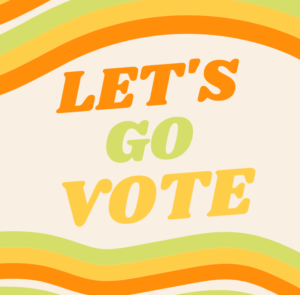
by Bus Admin | Jul 21, 2020 | Uncategorized
Written by: Megan Thao, Washington Bus Fellow July 21st, 2020
Whether you are coming into the age of voting or you haven’t exercised your right to vote before, here’s why you should vote in the Primaries this year!
What are the Primaries?
The Primary Election is the race that leads to the General Election. Your vote in the Primaries dictates who is going to be on the ballot for the General Election. Your ballot will also include nominations for your state legislatures, state Governor and plenty of other local officials awaiting your vote. Ballots went out July 17th and stay open until August 4th!
Who cares?
YOU SHOULD! Primaries allow you to choose who you want to vote for in the General Election, allowing you to take part in the statewide change that will happen after the election of the next President. The Primaries also affect you locally. The local officials you vote for will be the ones controlling your state’s budget, advocating for your state’s schools, and even affecting your state’s parks and recreation. Voting in the Primaries allows you to build the community you want to live in.
I’m ready to vote, what do I need to do?
- Make sure you are registered to vote!
- Do your research! Take accountability and learn about the candidates, statewide and locally. You can also reflect on the issues you care about and see how different candidates align with what you value.
- Put the pressure on your friends and community to vote. Every vote counts and what matters to you should be heard!
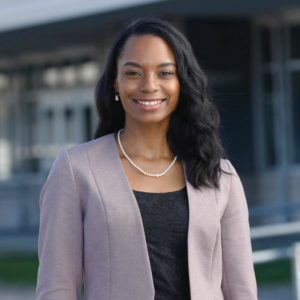
by Bus Admin | Jun 18, 2020 | Uncategorized
Written by Miki Kusunose, High School Bus Volunteer
We are pumped to announce The Washington Bus’ first round of endorsements! These candidates are advocating for a future we believe in and are empowering young people every step of the way.

T’Wina Nobles– State Senator, LD 28 (parts of Tacoma, Firecrest, University Place, Lakewood, Steilacoom, DuPont)
Running for State Senate in Legislative District 28, the current President of the Tacoma Urban League and two-time University Place School Board Director is pushing for access to quality education, workers’ rights, empowerment of women and girls, and addressing the housing crisis in her campaign.
She champions working with the community: “I will not create policy that is attempting to deal with discrimination due to race, ability, national origin, religion, sexual orientation, gender identity and/or gender expression without ensuring that there are activists, community members, and organizations at the table in partnership.”
With experience in education, Nobles advocates for the voices of youth. She wants to ensure all students have their voices heard and pursues equity in the education system. As a co-founder of Ladies First, a program supporting young women in schools, she wants to elevate and amplify the voices of women. Nobles seeks to serve her community as she channels her experience from previous community work, from the Poverty Action Network to Multicare’s West Region Mary Bridge Board.
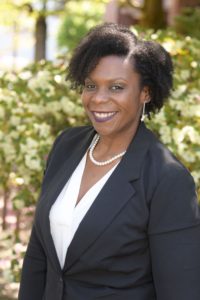 Jamila Taylor– State Representative LD 30 (Federal Way, Des Moines, Auburn, Algona, Pacific, Milton)
Jamila Taylor– State Representative LD 30 (Federal Way, Des Moines, Auburn, Algona, Pacific, Milton)
Taylor seeks to represent Legislative District 30 as a State Representative. As a business owner, attorney, and a consultant to businesses and nonprofits, she believes the state needs leaders who can address the “shared concerns about post-COVID-19 economic recovery, homelessness and affordable housing, public safety, health care, and equity.”
“I believe that despite Washington’s attempt to be a progressive region, the vestiges of racially discriminatory practices and policies still have impact on communities of color.” Taylor continues: “My presence as a woman of color in the state legislature is not enough. I must be willing to have the difficult, and critical conversations, in public AND behind the scenes.”
Taylor believes incorporating the voice of youth is critical to politics and strives to embody that ideal in her campaign for State Representative: “ I support a fair and equal democracy and will urge all of my constituents towards civic engagement.”
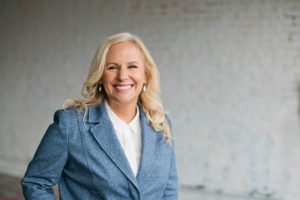 Mari Leavitt– State Representative LD 28 (parts of Tacoma, Firecrest, University Place, Lakewood, Steilacoom, DuPont
Mari Leavitt– State Representative LD 28 (parts of Tacoma, Firecrest, University Place, Lakewood, Steilacoom, DuPont
As a champion of health care, Leavitt strives to address inequities in her community. Leavitt is running for State Representative of Legislative District 28. Her experience as a State Representative, a PTSA leader, a business owner, and a mother makes Leavitt a multi-faceted community leader.
“As a daughter of a Japanese mother and mother of two African American children, and one who has lived in multicultural environments as a military kid, I’m especially aware of the critical nature that equity is to health, education, and employment options for the success of disadvantaged young people. Every decision I make is viewed through a lens of equity for communities.”
Leavitt values the voice of youth in the community: she has worked with college leadership groups to increase civic engagement and co-founded the Community and Technical College Student Voice Academy. Her experience as Vice Chair of the College and Workforce Development Committee let her listen to the voices of student leaders from across the state.
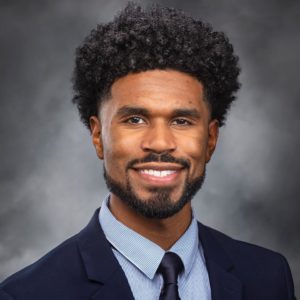 Jesse Johnson– State Representative LD 30 (Federal Way, Des Moines, Auburn, Algona, Pacific, Milton)
Jesse Johnson– State Representative LD 30 (Federal Way, Des Moines, Auburn, Algona, Pacific, Milton)
As one of the youngest figures in the State Legislature, Johnson advocates for young voters: ” I think having the perspectives of more young people in elected offices and other positions of power is essential if we are going to address the challenges facing young people — affordability, education, and opportunity and the global challenge of addressing climate change.”
He channels his experience as a community leader and council member in Federal Way as he works to address the disproportionate effects of climate change on low income communities, continues to support De-Escalate WA for gun reform, and pledges to fight for criminal justice reforms.
Johnson carries a plethora of experience when it comes to involving youth in politics. He currently works as a Staffing Analyst in Workforce Planning and Development for Highline Public Schools and has committed countless hours in organizing youth forums, youth violence prevention programs, and providing apprenticeship/post-secondary education opportunities.
Marko Liias– Lieutenant Governor (Statewide!)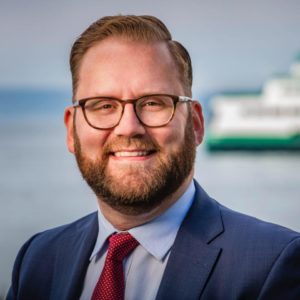
The current State Senator to the 21st Legislative District now seeks to run for Lieutenant Governor. As the first millennial elected to State Office himself, Liias is a fervent advocate for incorporating young voices in today’s world of politics.
Liias channels his commitment to serving the youth and translates it into legislative action: “I have put an emphasis on the issues that matter to young people in Washington, including higher education and debt reform, increased wages, and investments in a clean energy future.”
As one who identifies as LGBTQ+ as well as a white man, he has used his experience and understanding of his position to represent the voices of Washingtonians that are often marginalized and underrepresented. He is a member of the Senate Ways & Means Committee, which addresses affordable housing and homelessness, has helped create the Office of Firearm Safety and Violence Prevention, and champions mental/behavioral health measures, along with many others. Liias writes: “I am a proud, lifelong Washingtonian. I would not be who I am or what I am, without this place. As I take this next step, I am more committed than ever to expanding opportunity and building on the progress we have made together.”
by Bus Admin | Jun 16, 2020 | Uncategorized
Written by Miki Kusunose, Bus Volunteer
For many teenagers like me, the Black Lives Matter protests in the wake of the murder of George Floyd, Ahmaud Arbery, and Breonna Taylor have felt monumental and oftentimes overwhelming. As people my age approach adulthood, the deep scars of society, the kleptocratic realities of this country, and the realization that the biases within ourselves are intrinsic to systemic racism, are emerging in the consciousness of my generation. In short, it is a lot to process.
Truth to be told, this reality is not new—we simply have reached the age to come to an understanding of its existence. Systemic racism set foot on this continent in 1619 when the first Black slaves arrived in Jamestown, continued in the Reconstruction era through the rise of Jim Crow, persisted when “separate but equal” became the norm through Plessy v. Ferguson, and seeped into the deepest roots of America as “White Only” signs plastered store windows. Even after the Civil Rights Movement in the 60’s, America failed to acknowledge and uproot this systemic racism and the current condition of Black America serves as a clear testament to that truth. Black people are subject to racial profiling, unequal access to resources, astronomically higher incarceration rates, poorer education, and higher rates of poverty. Systemic racism has stained every inch of the fabric of American society. Again, it is a lot to process and difficult to come to terms with.
But I am hopeful and optimistic. The outrage by young people and the outpouring of support that I am seeing from those around me tells me that the current events will be a true catalyst for change. Nonetheless, it is easy to feel overwhelmed and not know what to do to help out with the Black Lives Matter movement.
Here are a few things that every teenager can do to enact change in our communities.
- Attend your local city council meetings: It is easy to get caught up in the national headlines when keeping up with the news. However, the most effective way to address systemic racism is by addressing it in your local community. As a teenage community member, your voice as a young person carries a powerful conviction especially in a local context. Voice your concerns through a Public Comment during a city council meeting. The Seattle City Council allows anyone to sign up for a Public Comment 2 hours prior to the council meeting. Seattle City Council’s meetings are now all held online. Public testimonies through Zoom are available for the Renton City Council meetings, and written requests can be sent in for Bellevue City Council. Make sure to check your city’s policies on citizen participation for city council meetings.
- Get involved with and/or donate to Bail Funds: Thousands of people are in pre-trial jail in which many of whom need bail assistance to leave. Moreover, many of these people have not even been convicted of a crime—yet, they are held in jail. Incarceration rates for Black people are six times higher compared to white people in Washington State and this leaves many Black people struggling to break loose out of a criminal justice system that criminalizes them. Use-of-Force rates are significantly higher on Black people and unsurprisingly, a disproportionately large number of police complaints are filed by Black people. Donations to the Northwest Bail Fund, for example, can support those in pre-trial jail in King and Snohomish county. Now more than ever, these people need the support to go back to their families and their lives. Bail Funds are an effective way to have an immediate impact on the local community.
- Keep your representatives accountable: Whether it be your district representative into the United States Congress, Washington State Legislature, or local community leaders, these representatives’ duty is to voice your concerns and demands on an institutional level. Do not hesitate from writing emails and letters to your local representatives. Maria Cantwell and Patty Murray are the Senators representing Washington State. Pramila Jayapal represents Washington’s 7th Congressional District (Seattle, Shoreline), Adam Smith represents the 9th District (Bellevue, Renton), and Suzan DelBene represents the 1st District (Redmond, Bothell). I also urge you to reach out to Washington State legislatures in your local district: https://app.leg.wa.gov/DistrictFinder/Home/GetMobileMapView?lat=0&lng=0. Find both your Congressional and Washington State Legislature Representatives in your local district using this website. Equally important is the executive office of King County, headed by Dow Constantine who serves 4 year terms: he will be up for reelection in 2021. The 2020 August Primaries are especially important knowing that the next Attorney General (currently Bob Ferguson) will be elected. The Office of the Attorney General is responsible for criminal justice, public safety, and economic justice amongst many other duties. With the current pressures to reform public safety in Seattle, keeping the Attorney General accountable will be critical to the success of the Black Lives Matter movement.
- Research, have conversations, and engage in introspective reflection: This monumental time offers us a critical time to research about systemic racism that is deeply rooted in American society. It is omnipresent in both the timeline of American history as well as today’s modern American society. Take the time to read books and publications to immerse yourself in how your life is interwoven in this society. A few books that I consistently come across regarding Black history are, So You Want to Talk About Race by Ijeoma Oluo, Between the World and Me by Ta-Nehisi Coates, and The New Jim Crow by Michelle Alexander. I can speak personally to Between the World and Me, and that Coates’s powerful writing, strong conviction, and clear message offered me a deep look into the life of Black man in America. This tumultuous time also makes for a great time to reflect upon yourself. Ask yourself, what privileges do I have because of the color of my skin? How do my actions feed into systemic racism? When do I unknowingly buy into implicit biases based on race? These are difficult, but critical questions to ask yourself as an American.
I hope the four things above can serve as a guideline to how teenagers like me can be involved in this fight for racial equality. Diving deep into your local community as well as yourself during these times can make for transformative conversations and institutional change which will be critical to the success of this movement.

by Bus Admin | Apr 16, 2020 | Uncategorized
Dearest young artists, we miss you! 🤩 We miss being able to attend your shows, see your work in galleries, and watch you perform. We also know that COVID is disproportionately affecting you.
So here’s the deal: we’re holding a small contest! The details: creatives between the ages of 16 and 35 who are missing income due to the pandemic are encouraged to virtually submit artwork *related to the Bus’ mission.* The contest is limited to ten submissions and the deadline is May 6. Those ten people will automatically receive $25. Then we’ll hold a public vote (because we ❤️ democracy) and the winner will receive $300, second place $200, and third place $100.
We know this isn’t enough to offset how you’re being affected, but it’s what we can do for now (hopefully more to come 🤞🏽). We’ll obviously be sharing your art as widely as possible, too! Use your imagination to tie your art form in with our mission. Ideas: Voting! Census! Immigration reform! Student debt reform! Raising the voices of those historically underrepresented! Then submit your masterpiece to: libby@washingtonbus.org 🌟 Please comment or email with questions!
We can’t wait to see/hear/watch what you create. Take care!

by Bus Admin | Apr 9, 2020 | Uncategorized
In the current state of global pandemonium, news of the 2020 Census has been buried underneath blaring headlines about the coronavirus. The Census deadline has been pushed back to mid-August, and the stay-at-home orders have left Census workers biting their nails, apprehensive about the accuracy of this year’s Census.
This setback, however, does not change the fact that the Census matters more than ever for teenagers. As teenagers, it is easy to sit in the sanctity of our homes, letting any shred of thought regarding the Census fly over our heads. After all, we are still kids, sheltered from the realities of an adult life. However, the Census occurs once a decade—in other words, the Census data from 2020 will directly affect federal program spending deep into our 20’s.
Hundreds of federal programs use the Census data to make decisions on where and how the 675-billion dollars-worth of funding will be distributed every year. A large portion of this money directly affects high schoolers and college students. In fact, according to a study by the U.S. Department of Commerce, three within the top ten largest programs that use the Census Bureau Data are from the Department of Education. The largest of the three, is the Federal Pell Grant Program.
Federal Pell Grant Program, as the name implies, offers grants from the US Department of Education to help undergraduate college students pay for tuition. According to estimates from a Federal Pell Grant Report, 31% of undergraduate students received Pell Grants, or about 6.8 million students, during the 2018-2019 school year. The program’s 28 billion dollars of expenditures were directly affected by the 2010 Census data.
As a high schooler, I am frankly blown away by these numbers. The realization that a third of my peers in college will be dependent on federal programs that use Census data, hits me with a sense of urgency. Unfortunately, college debt is an inescapable reality for most students and mitigating the crisis of college debt will require appropriate distribution of funding. Knowing that the financial support that we will receive during our time in college is contingent on the accuracy of this year’s Census sheds light on the fact that the 2020 Census is vital to our long-term livelihoods.
Other than the Federal Pell Grants, medical assistance, construction, and Title 1 Grants, among many other programs will depend on the data from the 2020 Census. As one teenager to another, I want to call out to you reading at this very moment, to help with the Census. The Washington Bus has organized multiple virtual ‘Get Out The Count’ text/phone banks via Zoom, giving young people like us to contribute to the Census, especially during this extraordinary time when Census workers will need all the help and support they can get. Ultimately, the Census is not just a head count. It is a projection of our lives ten years into the future, and this opportunity to shape our future is, in my fair opinion, pretty darn important.
-Miki
To fill out the census, go to 2020census.gov right now and respond. Be sure to include everyone you currently live with!
Want to volunteer with us? Help us contact people all over Washington State to Get Out The Count! We’re hosting weekly remote volunteer events as we work together to spread the word on Census! Sign up here.
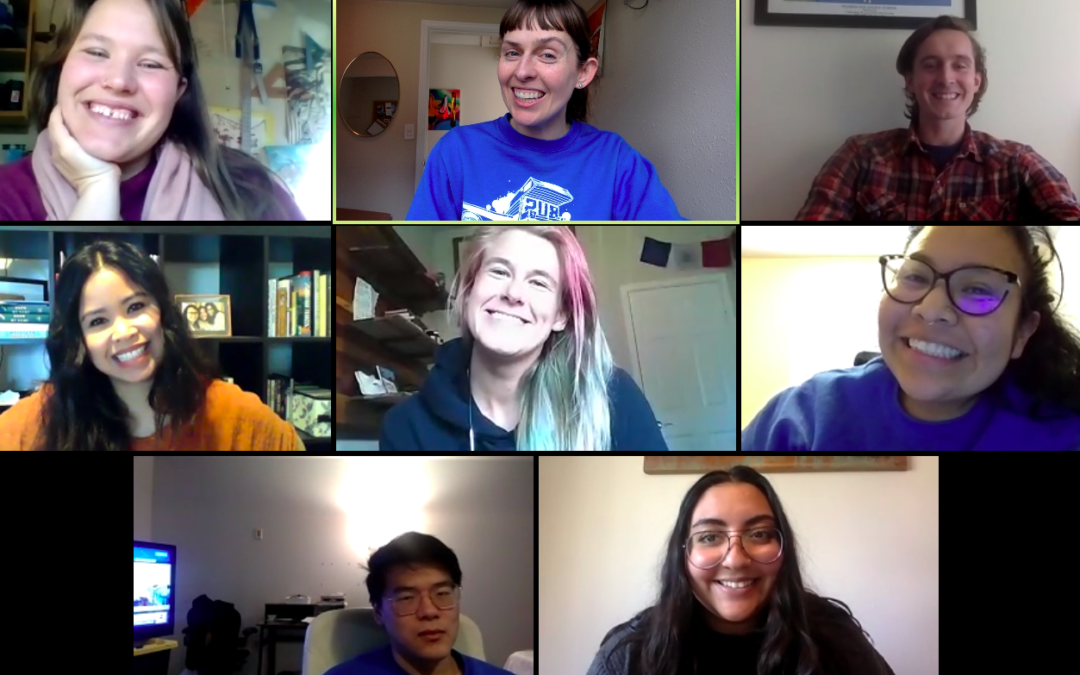
by Bus Admin | Mar 31, 2020 | General Updates/Newsletter, Uncategorized
Friends,
With two new Co-Executive Directors starting earlier this month, we here at the Bus were feeling ready to take on the world! Or at least, ready to continue building our statewide movement to increase political access and participation for all young people #youthquake. Enter COVID-19, the virus that is having an unprecedented impact on the lives of each of us, and that of our loved ones and our communities.
We care about our community, especially those who are likely to be disproportionately affected by this pandemic and the narrative surrounding it– people of color, immigrants, people with a low-income, and those that are incarcerated. We’re here to do our part.
Like you, the Bus values inclusion, empowerment and justice, and it is out of these values that we are continuing to do our work. With an eye to the health and safety of the community, we’ve made some adjustments, because we know democracy must go on:
-
Our staff has been working remotely since March 16 and will continue to do so through at least April 8 (per Governor Inslee’s Stay Home, Stay Healthy order), if not longer. The health and safety of our staff and the community is number one.
-
We have shifted our current programming away from face-to-face field work and towards digital organizing and other remote strategies. Last week we kicked off our remote Census 2020 outreach and have held two “Get Out the Count” remote text banking sessions, yielding over 25,000 texts! We will be holding a remote phone/text bank every week to ensure our communities know to complete the census.
-
We have cancelled the in-person Bus Bash fundraiser and instead will be sharing virtual opportunities so you can continue to support our work and the 2020 Fellows when they begin the program this June. Stay tuned for updates.
We are fortunate to have the ability and privilege to practice the above-mentioned physical distancing.
We are in this together. We’d like to invite you to join us in whatever way you are able. Here’s how you can be with the Bus as we ride out this COVID storm:
-
Take care of yourself. We care about you and we need you. There are loads of resources available from our state here: https://www.coronavirus.wa.gov/
-
Complete the Census! Let’s help our community get the vital resources for its greatest moments of need (like right now).
-
Join a GOTC phone/text bank! Sign up here for the remarkably de-stressing activity of contacting strangers about democracy.
-
If you were planning to attend Bus Bash and your financial situation is stable, you can still support our work with a 100% tax-deductible gift in honor of Bus Bash.
-
Fight racism, xenophobia and ableism. This pandemic is feeding the long history of how immigrant groups and people of color have been labeled with “disease” imagery. We encourage each other to address the jokes and do their part to support people of color during this time.
Together, let us rise to this new challenge. Let us continue to demand that local and state governments adopt policies that protect historically disenfranchised communities and meet the needs of all people, not just some. And let us get innovative and creative with how we do this now, in the time of the Coronavirus, and for the long-term beyond.
In solidarity,
The Bus Team
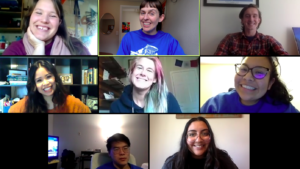
WA Bus staff during a virtual team meeting.




 Jamila Taylor
Jamila Taylor Mari Leavitt
Mari Leavitt Jesse Johnson
Jesse Johnson


